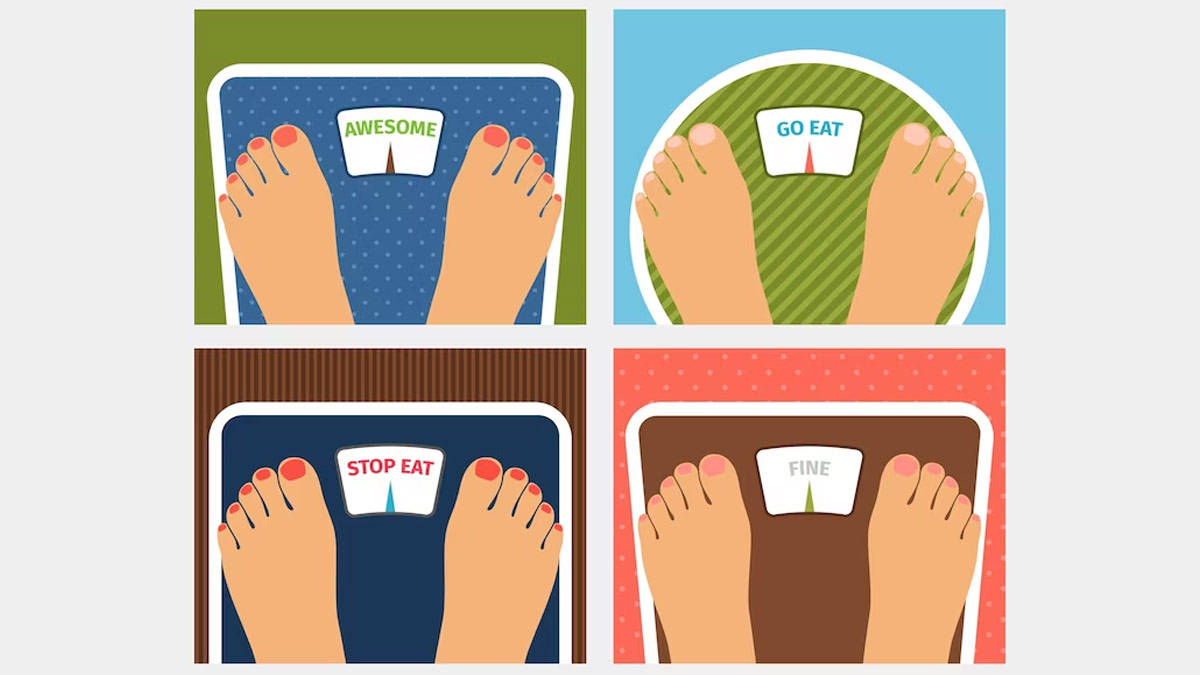
You'd be lying if you said you've never stepped on a weighing machine right after finishing a meal.
The desire to check one's body weight after every bite of food consumed is driven by a desire to get six-pack abs fast. Tracking weight is particularly important because it is the only parameter used by many people to measure their fitness levels. But is this regular weighing beneficial, and is there the best time to check our weight? Let's delve into this topic and explore the best practices for checking weight effectively.
Table of Content:-
Morning Or Evening? What Is The Best Time To Check Weight?
The time of day you choose to weigh yourself can have an impact on the numbers you see on the scale. According to Delhi-based dietician Priya Bansal, "The best time to weigh oneself is in the morning, after waking up and emptying your stomach." This is because your body is typically in a fasted state after a night of sleep, and you haven't consumed any food or drinks that could affect your weight, Bansal Added.

"By checking your weight in the morning, you get a more accurate representation of your body's baseline weight," stated Bansal. She also warned that weight can fluctuate throughout the day due to factors such as water retention, digestion, and physical activity.
Also Read: 5 Ways To Measure Your Fitness Progress Other Than Scale Numbers
How Often To Check Weight?
When it comes to weighing yourself, moderation is key. Obsessively stepping on the scale multiple times a day can lead to unnecessary stress and anxiety. Bansal recommended limiting weighing yourself to once a week or once every two weeks. This interval allows for more meaningful changes in body weight to occur, rather than getting caught up in day-to-day fluctuations that might not accurately reflect your progress, she added.
Rules To Follow When Checking Weight:

1) Dont Check Your Weight On Different Scales
Different scales may have slight variations in accuracy, which can lead to misleading results. Bansal advised that by consistently using the same scale, you ensure that any changes observed over time are truly reflective of your progress.
2) Keep The Factor Controlled
Bansal stated that clothing can add weight, so it is advisable to weigh yourself while wearing the same or similar clothing each time. Choose lightweight clothing that doesn't significantly affect the reading on the scale.
3) Do It First Thing In The Morning
To obtain the most accurate weight reading, it is recommended to weigh yourself on an empty stomach. This means weighing yourself in the morning before eating or drinking anything. Bansal warned that food and beverages can add temporary weight due to digestion and hydration, which may affect the numbers on the scale.
4) Be Aware That It Will Never Be The Same
Bansal said that sometimes eating a high-sodium meal a day before weighing can cause water retention in the body, which can increase your body weight. Factors like medications, and menstrual cycles can also lead to temporary water weight gain. Recognise that these fluctuations are not indicative of actual fat gain or loss, she added. It is important to be mindful of these factors and understand that they can influence the number on the scale without reflecting your true progress. “Hence, always check weight two days after your periods end,” she advised.
Also Read: Ditch The Scale And Track Your Weight Loss Progress In These Ways
5) Avoid Getting Obsessed With Numbers
Remember that the number on the scale is just one measure of your overall health and fitness. It does not define your skin or organ health. Instead of obsessing over a specific weight, focus on adopting healthy habits, such as maintaining a balanced diet and engaging in regular physical activity, Bansal concluded.
[Disclaimer: The information in this article is provided by a registered medical practitioner. However, we recommend you consult your healthcare provider for accurate diagnosis and treatment.]
Image Credit: Freepik
Also watch this video
How we keep this article up to date:
We work with experts and keep a close eye on the latest in health and wellness. Whenever there is a new research or helpful information, we update our articles with accurate and useful advice.
Current Version